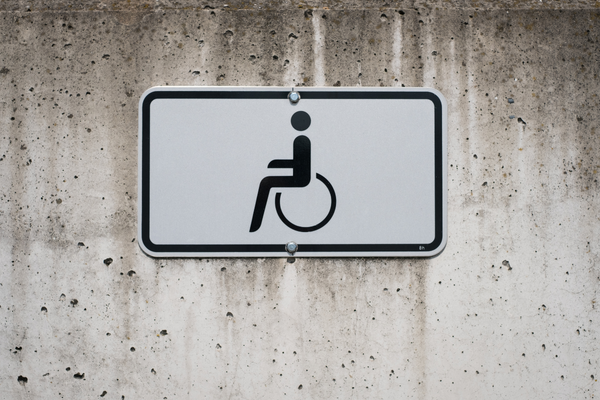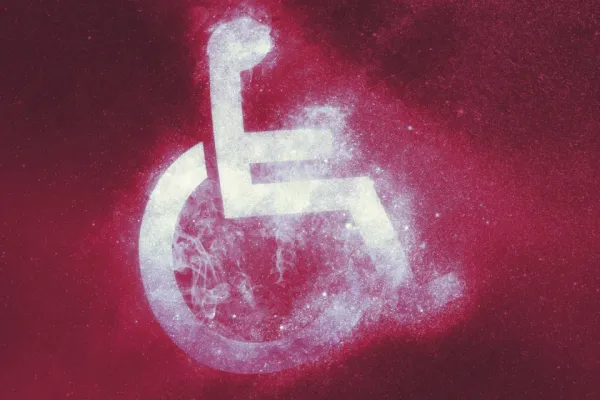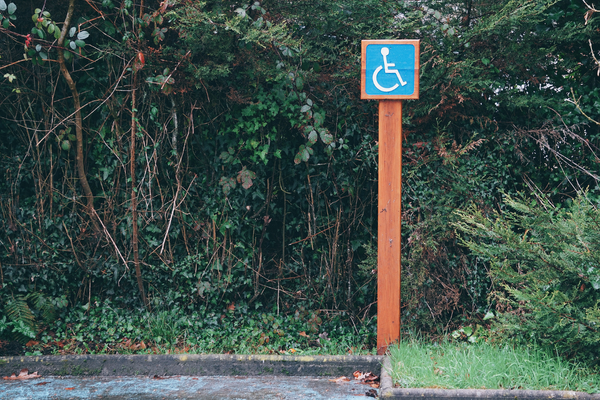Disability Thinking Weekday: 6/17/24
Reunion thoughts


College Reunion Thoughts
This past weekend I attended my 35th Reunion at Dartmouth College. There are at least a dozen possible angles on what that means — including the rather staggering degrees of privilege that are implied. But for this newsletter, I want to simply share some semi-random thoughts about the experience as a disabled alumnus, as I process them.
By the way … If you are rolling your eyes right now or otherwise aren’t interested in this more personal stuff, feel free to skip it. The usual weekday disability link shares will be back tomorrow.
- After 35 years away, the happiest surprise for me might be how much more accessible the campus has become. It was pretty accessible even when I was there in the late ‘80s, just before the Americans with Disabilities Act. But there were a few buildings I could never get into with my mobility scooter, lots of doors that I couldn’t open without help, and sidewalks that could be treacherous or that would come to a sudden end, with no way forward but to backtrack, awkwardly. Now, the most old and historic buildings have very natural-looking ramps, there are automatic doors everywhere, and it seems like every sidewalk is entirely accessible, end to end.
- The best part of Reunions for me was visiting Phi Tau Coeducational Fraternity, and catching up with many of my fellow “brothers.” I am not an adept or especially comfortable person in social situations. But as it did when I was an undergraduate and living in the house, being with these people felt completely natural and right. It really did feel like we had only been away for a summer break, instead of 35 years.
- And get this — Phi Tau is in a “new” house that was built in 2002, well after we left the old one. Why is a long story that doesn’t matter here. The point is that the new house is accessible, and includes an elevator! Whatever you think about Fraternities, Sororities, and the like, accessibility belongs everywhere.
- Built-in accessibility and sound individual accommodation procedures are important. But still, nothing works quite as well as person to person contact before the event, and some degree of personal buy-in from key organizers. That could be, certainly should be, a built-in strength of reunions. A disabled participant is more likely to know the people organizing the event because they are former classmates. And I know for a fact that this helped smooth out some barriers for me that the college bureaucracy alone would have created.
- There were several reunion events that I was slightly interested in but didn't try to attend -- partially but certainly not completely due to accessibility or stamina concerns. That's the way it is with a lot of day to day accessibility and inclusion I think. As disabled people, our occasional, or frequent lack of participation in things isn't always about being excluded by solid external barriers. Often it's those little bits of extra friction that prompt us to decide, sometimes at the last minute, to just skip it and put our efforts elsewhere. Sometimes we make the decision. I'm mostly okay with that.
- That said, being at the reunion made me feel that at I have in fact become a little more proactive about trying things than when I was an undergraduate. My college experience was terrific, and my access to things in the late '80s was surprisingly good. But there were also a lot of things I just never tried to do that I now wish I had. If I could do it again, the way I am now …? But that’s what everyone thinks about their past and present lives, isn’t it?
- I had such a full and good day on Friday that I decided to come home a day early. I suppose that could be seen as something of a letdown. But honestly, I had done everything I came to do, seen pretty much everyone I had hoped to see, and was missing the comfort of my own bed. Again, I think this kind of decision-making is very familiar to people with all kinds of disabilities. And every time, it’s either a mark of some kind of failure, or a sensible and contented coping strategy. It's probably hard to tell the difference from the outside. But when it's you, you can tell the difference.
- Obviously, I didn't see or meet everyone who was on campus for this year's reunions, so I might have missed someone. And of course I'm confident that there were lots of people there with disabilities that aren’t readily apparent. But I was a little surprised that I didn't see a single other person with an obvious, visible disability. I thought that at least our advancing ages would have resulted in one or two fellow alumni other than me using some kind of a mobility aid.
- To answer a question I posed in a poll on June 7, I decided to seek help from on-campus reunion staff rather than ask classmates. It could not have have worked better. Each time I called the housing office for assistance -- on arrival and at departure -- two student workers came to help within minutes. Both times they cheerfully pitched in. They even helped figure out how to assemble and dismantle the mobility scooter I rented for the weekend.
- One feature of the reunion that probably should have bothered me more than it did is the almost complete lack of any COVID precautions, most notably nobody wearing masks. I did see one couple who had masks at the ready, but I didn’t ask them their reasoning for this. And I didn’t see anyone else with them. I brought one for myself, in case I felt a personal, instinctive need for some extra protection in particular situations. I didn’t. A lot of disabled and chronically ill people I care about and respect would probably regard this as a deal breaker. My own feelings about such things are still evolving. For what it’s worth, I am as sure as I can be with the tools available that I didn’t spread COVID to anyone else. And I am fully prepared to be proved wrong in my choice not to protect myself.
Overall, I would recommend disabled people give high school or college reunions a try if it’s an opportunity available to you. Plan ahead. Push through any hesitancy as much as you feel comfortable with. Keep an open mind about what you will and won’t do. Meet old friends. Get to know some people you barely knew back in the day a little better. And think about how your experiences as a disabled student compare to what it’s like today being a disabled adult and alum.
Disability Thinking Weekday is a Monday-Friday newsletter with links and commentary on disability-related articles and videos.
Please like, share, comment, and subscribe — for free, or with a paid subscription of $5 per month or $50 per year. Benefits of paid subscription include:
- A monthly recap with links to all of the previous month's shared articles, organized by topic.
- You can recommend one disability-related article for me to share per month in a weekday post.
- Access to all past posts, the complete archives.
I am so grateful for your help and engagement, in whichever forms you choose!



